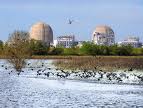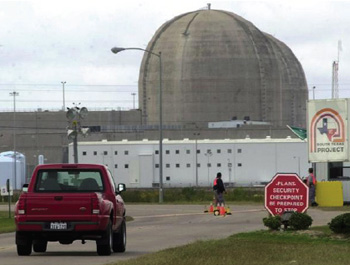According to a U.S. Nuclear Regulatory Commission release, staff will hold a regulatory conference with Luminant Generation Co. officials on Jan. 13, to discuss the significance of an inspection finding at the Comanche Peak nuclear power plant located near Glen Rose, Texas, just an hour west of Fort Worth.
NRC and Comanche Peak will discuss the significance, cause and corrective actions associated with the “apparent failure by the company to incorporate into station procedures information necessary to ensure continued operability of a water tank that supplies safety-related equipment”. Specifically, an NRC inspection revealed, the company failed to take steps necessary to ensure that a rubberlike bladder inside the tank was properly maintained.
The meeting, which will be open to public observation, will begin at 1 p.m. in the NRC’s Region IV offices in Arlington, Texas located at Texas Health Resources Tower, 612 E. Lamar Blvd., Suite 400.
The public will have an opportunity to observe and ask questions of NRC staff after the business portion of the meeting. Members of the public can listen to the meeting via a special telephone line by calling 1-800-952-9677 and asking to be connected to the meeting.
The NRC evaluates regulatory performance at commercial nuclear power plants with a color coded process which classifies regulatory findings as either green, white, yellow or red, in increasing order of increasing safety significance. The NRC staff has preliminary determined that the significance of the violation is “white,” meaning it has a low to moderate safety significance.
No decision on the final significance, the apparent violations or any contemplated enforcement action will be made during the conference. Those decisions will be made by NRC officials at a later date.
###
By promoting cleaner energy, cleaner government, and cleaner air for all Texans, we hope to provide for a healthy place to live and prosper. We are Public Citizen Texas.








